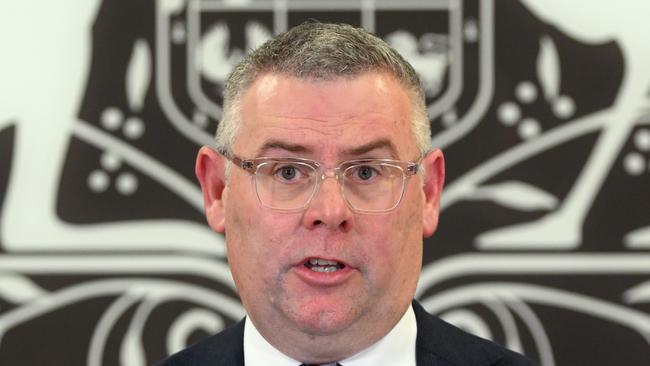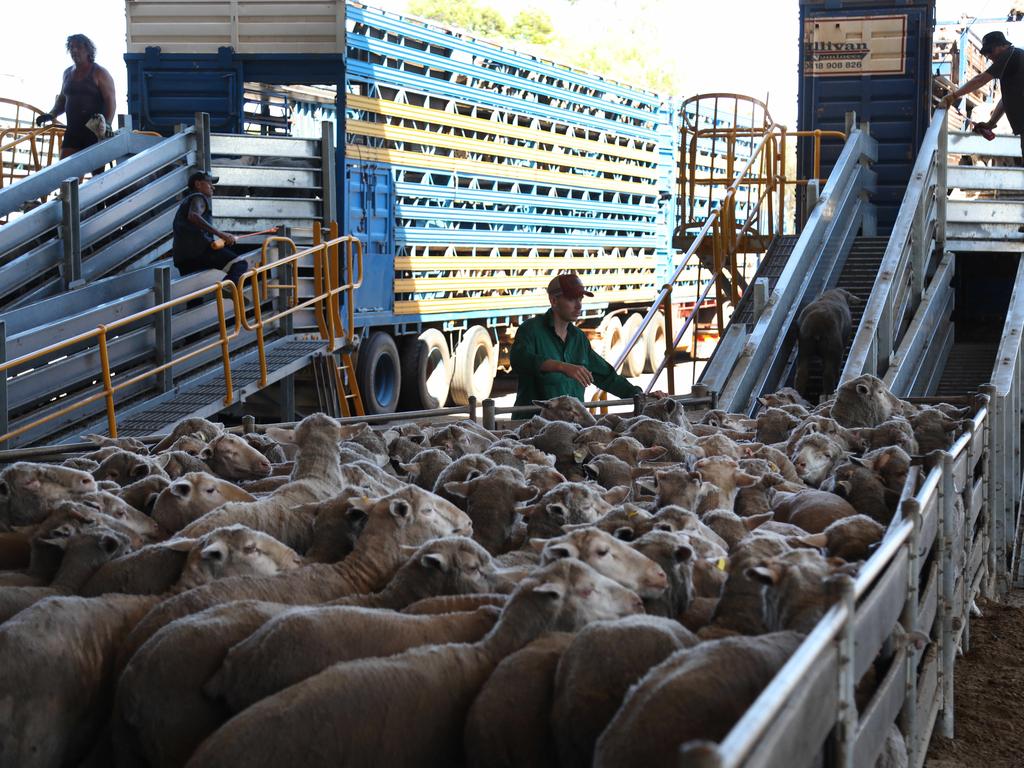Offer of talks but live sheep exports will be banned
The Albanese government is forging ahead with its plan to end live sheep exports and will today launch a consultation process to end the trade.

The federal government has begun a consultation process as it forges ahead with its plan to end live sheep exports.
The announcement came despite immense pressure from Australian farmers and the agriculture sector which has outlined its opposition to the policy Labor took to the 2022 election.
The heads of 25 powerful farming organisations wrote to Agriculture Minister Murray Watt this week, warning him that the proposed ban was a “red line that can’t be crossed”.
They have vowed not to engage in discussions with the government on how to phase out the trade.
Speaking in Perth on Friday, Senator Watt encouraged farmers to take part in the six-month consultation process.
“I think it would be disappointing if some of those farmers didn‘t participate in this process, because we want to hear from them about how and when we can implement this commitment in the best possible way for their members as well as the whole community,” he said.
The panel will be chaired by former Murray Darling Basin Authority chief executive Phillip Glyde and includes Western Australian rural advocate Sue Middleton, former Labor federal minister Warren Snowdon and former RSPCA chief executive Heather Neil.
“Phasing out live sheep exports by sea is a complex issue that will impact farmers, businesses, our trading partners, and the communities that participate in the trade,” Senator Watt said. “I am also conscious that the wider Australian community is interested in the phase-out, including those that want to see animal welfare maintained and improved.”
Senator Watt said the live sheep export trade would not end during the current term of government and he hoped there would be time to transition to expanded onshore processing.
“Australia already exports 50 times as much sheep meat by value compared to what we export in live sheep,” he said.
“And we think there are real opportunities to expand that trade over the coming years with new markets being opened up in the UK, in India, and all going well, in the EU as well.”
Asked why the government was banning the trade, apart from it being an election commitment, Senator Watt said it was “not up for discussion”.
“From my perspective it is nothing more than about implementing an election commitment,” he said.
“I know that people want to get into why we’re doing it, whether we should do it, should we change it? That’s not up for discussion.”
Farmers have raised concerns that the ban would set a precedent that could lead to the lucrative live cattle export trade also being axed.
But Senator Watt said the government supported the live cattle export industry and would not be ending it.
Mr Glyde said the panel would conduct face-to-face meetings and review written submissions to “determine the future of the sheep industry in WA and more broadly across Australia”.
Animal welfare organisations welcomed the government’s move towards ending the trade.
“Live sheep export has been a source of profound suffering to Australian livestock over the years and has reaped untold damage on the nation’s clean, green agricultural reputation,” Alliance for Animals policy director Jed Goodfellow said.
“We will be encouraging all Australians with an interest in animal welfare to participate in the consultation process so that the panel and the government is under no doubt as to the public’s overwhelming support for the phase-out.”






To join the conversation, please log in. Don't have an account? Register
Join the conversation, you are commenting as Logout